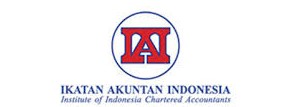Pengaruh Good Governance dalam Pengelolaan Dana Desa Terhadap Kepercayaan Masyarakat: Suatu Persepsi dari Masyarakat di Kecamatan Pantai Cermin
Abstract
This study aims to determine the effect of good governance (perceived accountability, perceived transparency, and perceived responsiveness) in the management of village funds in Pantai Cermin District on public trust. This type of research is causative with a quantitative approach. The population in this study was the people of Pantai Cermin District with a sample of people who were or had completed their education at tertiary institutions. Primary data in this study were collected by distributing a 5-point Likert scale questionnaire. SPSS software version 24 is used as a tool in processing research data and multiple linear regression analysis is used as a data analysis technique in this study. The results of the study show that perceptions of accountability have no partial effect on public trust; conversely, perceptions of transparency and responsiveness influence public trust. Simultaneously the three components of good governance affect the community's trust in the village government in Pantai Cermin District.
References
Apriliana, I. (2019). Determinants of accountability and transparency of village fund allocation management and its impact on community trust. Akurasi: Jurnal Studi Akuntansi Dan Keuangan, 2(2), 109–122. https://doi.org/10.29303/akurasi.v2i2.18
Beshi, T. D., & Kaur, R. (2020). Public trust in local government: Explaining the role of good governance practices. Public Organization Review, 20(2), 337–350. https://doi.org/10.1007/s11115-019-00444-6
Deegan, C. (2002). Introduction: The legitimising effect of social and environmental disclosures–a theoretical foundation. Accounting, Auditing & Accountability Journal, 15(3), 282–311. https://doi.org/10.1108/09513570210435852
Deegan, C. M. (2019). Legitimacy theory: Despite its enduring popularity and contribution, time is right for a necessary makeover. Accounting, Auditing & Accountability Journal, 32(8), 2307–2329.
Grimmelikhuijsen, S. (2012). Linking transparency, knowledge and citizen trust in government: An experiment. International Review of Administrative Sciences, 78(1), 50–73. https://doi.org/10.1177/0020852311429667
Hartanto, D., Dalle, J., Akrim, A., & Anisah, H.U. (2021). Perceived effectiveness of e-governance as an underlying mechanism between good governance and public trust: a case of Indonesia. Digital Policy, Regulation And Governance, 23(6), 598-616.
Imawan, A., Irianto, G., & Prihatiningtias Y.W. (2019). Peran Akuntabilitas Pemerintah Desa dalam Membangun Kepercayaan Publik. Jurnal Akuntansi Multiparadigma, 10(1), 156-175.
Mansoor, M. (2021) Citizens’s trust in government as a function of good governance and government agency’s provision of quality information on social media during COVID-19. Government Information Quarterly. 38(4). http://doi.org/10.1016/j.giq.2021.101597
Mardiasmo. (2002). Akuntansi Sektor Publik. Yogyakarta : ANDI
Nawawi, J. (2012). Membangun Kepercayaan Dalam Mewujudkan Good Governance. Jurnal Ilmiah Ilmu Pemerintahan. 1(3), 19-29.
Nordiawan, Deddi dan Ayuningtyas Hertianti. (2010). Edisi 2 Akuntansi Sektor Publik. Jakarta : Salemba Empat
Nurrizkiana, B., Handayani, L., & Widiastuty, E. (2017). Determinants of Transparency and Accountability of Regional Financial Management and Its Implications to Trust of Public-Stakeholders. Journal of Accounting and Investment, 18(1), 28-47.
Pamungkas, B., Helmayunita, N., & Honesty, F. (2023). Pengaruh Akuntabilitas, Conflict of Interest dan Komitmen Organisasi terhadap Fraud Pengelolaan Dana BLT pada Masa Pandemic COVID-19. Jurnal Nuansa Karya Akuntansi, 1(1), 84-97. https://doi.org/10.24036/jnka.v1i1.1
Park, H., & Blenkinsopp, J. (2011). The roles of transparency and trust in the relationship between corruption and citizen satisfaction. International Review of Administrative Sciences, 77(2), 254–274.
Pratolo, S., Sofyani, H., & Maulidini, R.W. (2022). ) The roles of accountability and transparency on public trust in the village governments: The intervening role of COVID-19 handling services quality, Cogent Business & Management, 9(1), https://doi.org/10.1080/23311975.2022.2110648
Said, J., Aziz, M.A., Alam, M. (2015) Public Accountability System: Empirical Assesment of Public Sector of Malaysia, Asian Journal of Scientific Research.
Sekaran, U., & Bougie, R. (2016). Methods For Business: A Skill Building Approach. Fourth Edition. United Kingdom; John Wiley & Sons Ltd
Sofyani, H, & Tahar, A. (2021). Peran Akuntabilitas Dan Transparansi Pemerintah Desa Indonesia Terhadap Kepercayaan Masyarakat Desa: Kasus Di Kabupaten Bantul. Jurnal Akademi Akuntansi, 4(1), 10-25.
Undang-Undang Nomor 6 Tahun 2014 tentang Desa
Vigoda, E., & Yuval, F. (2003). Managerial quality, administrative performance and trust in governance revisited: A follow-up study of causality. The International Journal of Public Sector Management.,16(7), 502–522. https://doi.org/10.1108/09513550310500382.
Yousaf, M., et al. (2016) Exploring the impact of good governance on citizens' trust in Pakistan, Government Information Quarterly, http://dx.doi.org/10.1016/j.giq.2015.06.001







.png)
.png)
